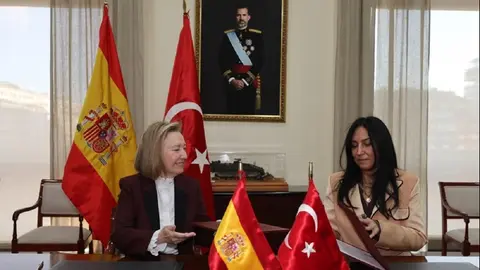Spain's Minister of Defence makes a hasty exit from the opening ceremony of FEINDEF 2025
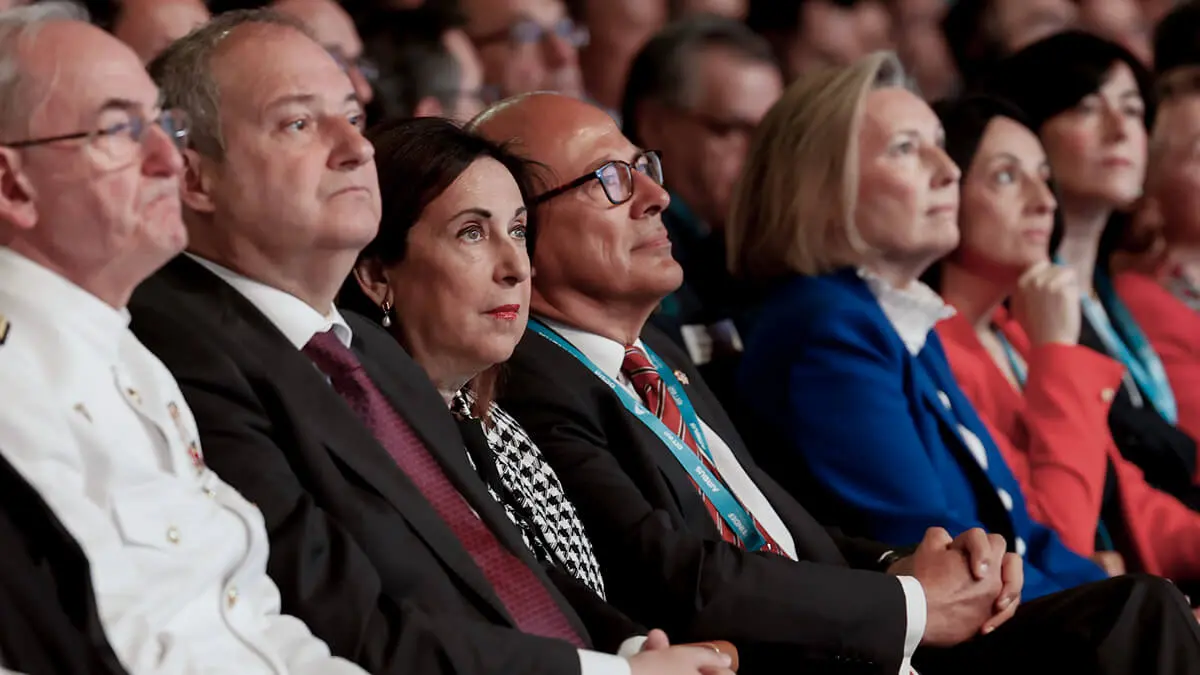
- She did not even open her lips to welcome the foreign guests
- Let it go well, but without drawing too much attention
However, surprise, surprise! The event ended without Minister Robles saying a single word, either about the importance of the fair or anything else, leaving the defence ministers of Angola, Bolivia, Gabon, Guatemala, Mauritania, Senegal and Ukraine, who had travelled to Madrid for the occasion, perplexed.
The invited ambassadors, military attachés accredited in Spain, and heads of delegations from third countries who had come to Spain from different parts of Europe, Asia, Africa and America to visit the technological innovations at the Fair were also left speechless.
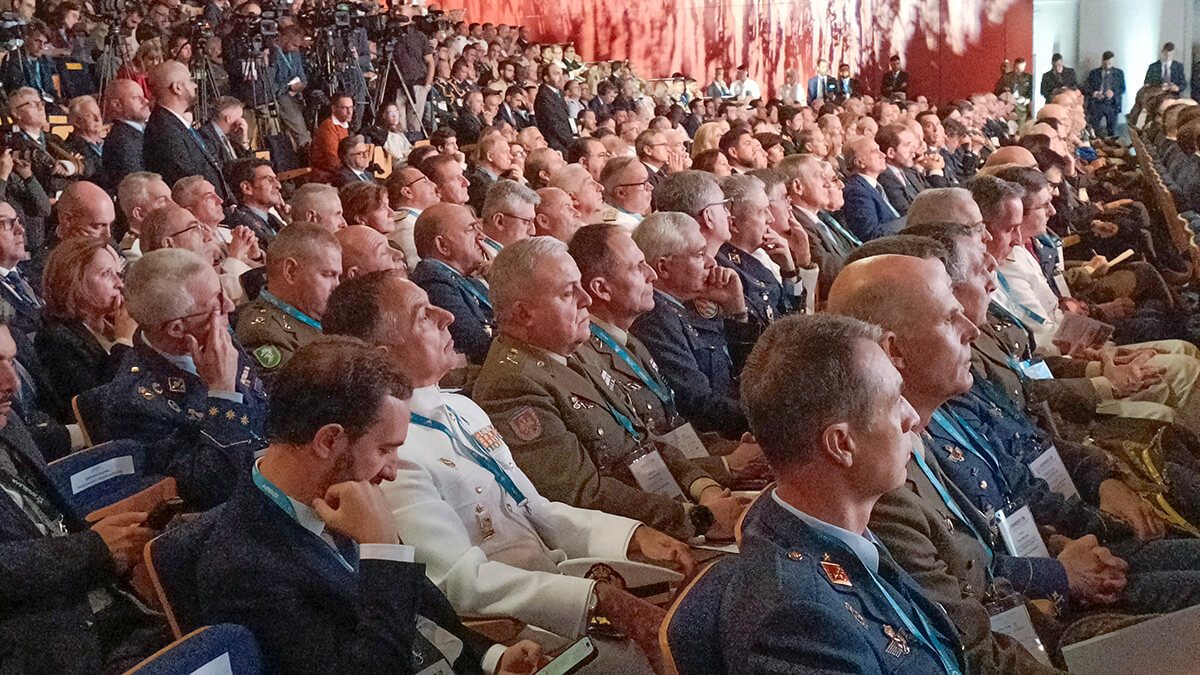
Of course, the executives of defence companies were also bewildered in their seats, as were the many dozens of Army and Air Force generals and Navy admirals present in the auditorium of the Madrid Trade Fair Institution, IFEMA, who looked at each other in disbelief.
Let's recap. On Monday, 12 May, in the main auditorium of IFEMA, the fourth edition of FEINDEF kicked off. Seated in the centre of the front row was Minister Robles, whose department is the main promoter of the event.
She did not even open her lips to welcome the foreign guests
Next to Margarita Robles was the Minister of Industry and Tourism, Jordi Hereu. Both listened to the brief speeches by the president of the FEINDEF Foundation, former Secretary of State for Defence, Ángel Olivares, and the presidents of the Association of Contractors with Public Administrations (AESMIDE) and the Association of Defence, Security, Aeronautics and Space Technology Companies (TEDAE), Gerardo Sánchez Revenga and Ricardo Martí Fluxá, respectively.
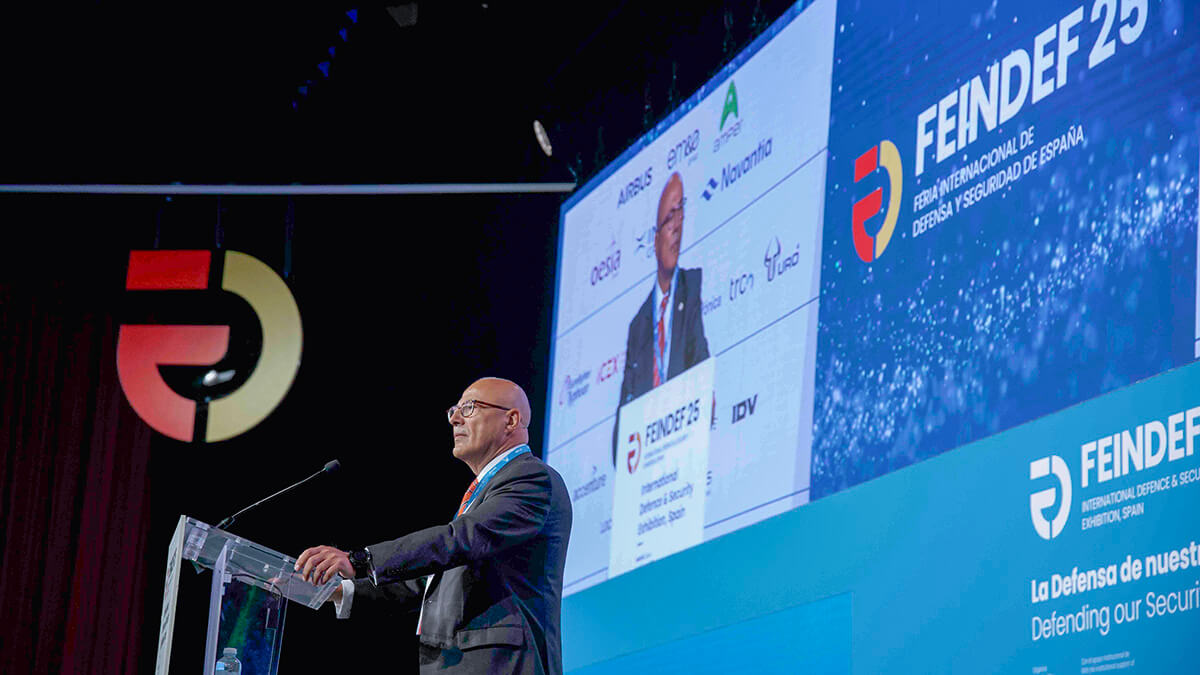
However, neither minister took to the stage to address the more than 500 guests, claiming that it was a matter of giving the floor to representatives of the industries in the sector. What Robles and Hereu did do before entering the auditorium was to simulate, in a small group, the traditional ribbon-cutting ceremony that, in any ceremony of this kind, symbolises the start or opening of an important event, such as a biennial international fair.
Why on earth did the Minister of Defence not say a few words of greeting and welcome to enhance the opening ceremony of the 2025 edition of the International Defence and Security Fair of Spain, which her department is promoting? All those present emphasised the enormous qualitative and quantitative leap forward made by the fourth edition of FEINDEF. Or is it perhaps because she has nothing to say about the Industrial and Technological Plan for Security and Defence in Spain and Europe, which President Sánchez has sent to NATO and the EU for approval?
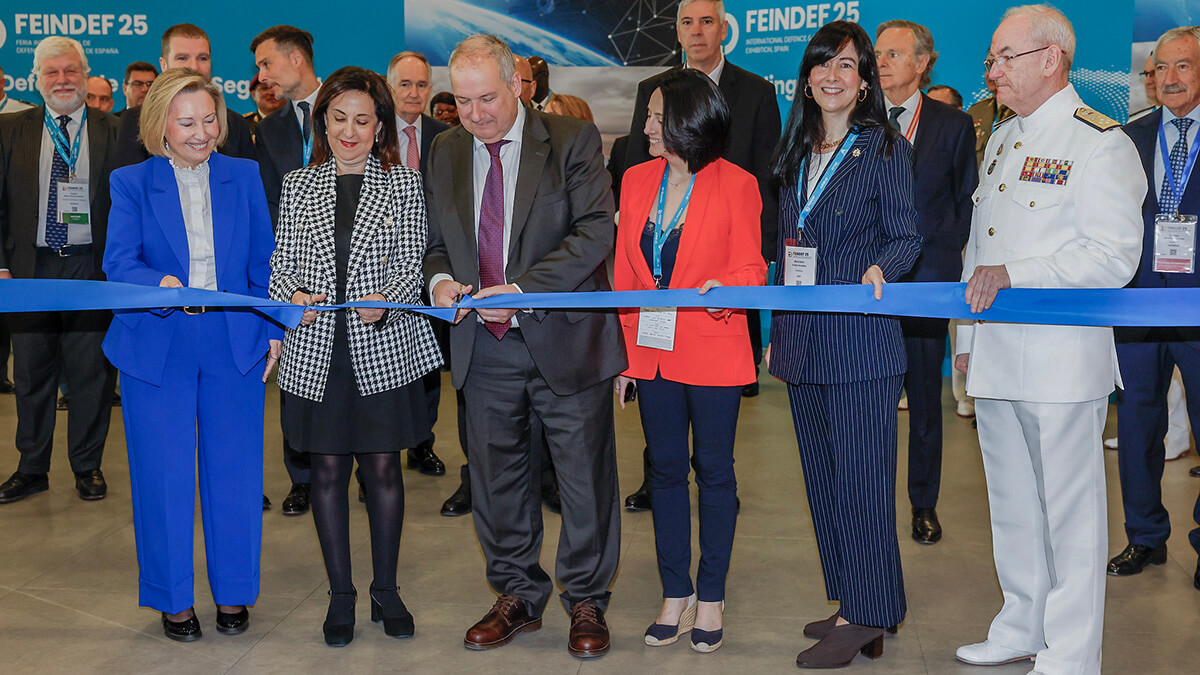
The explanation for her resounding silence is not simple. In huddles at the Fair, it was suggested that the main reason is the ironclad silence that Moncloa has imposed on Robles regarding Pedro Sánchez's Plan to Rearm Spain. Another factor is that Margarita Robles herself avoids anything to do with the defence industry as much as possible, a task she has handed over to her friend Amparo Valcarce, the Secretary of State for Defence.
The fragility of Sánchez's plan in its economic aspect, which is falling apart in Brussels, as well as Margarita Robles' aversion to everything related to weapons systems, is well known to virtually all the directors and senior executives of the Spanish defence industry. This is also true of senior officials in the Ministry of Defence and generals and admirals in the army and navy, although prudence dictates that they keep their mouths shut in public.
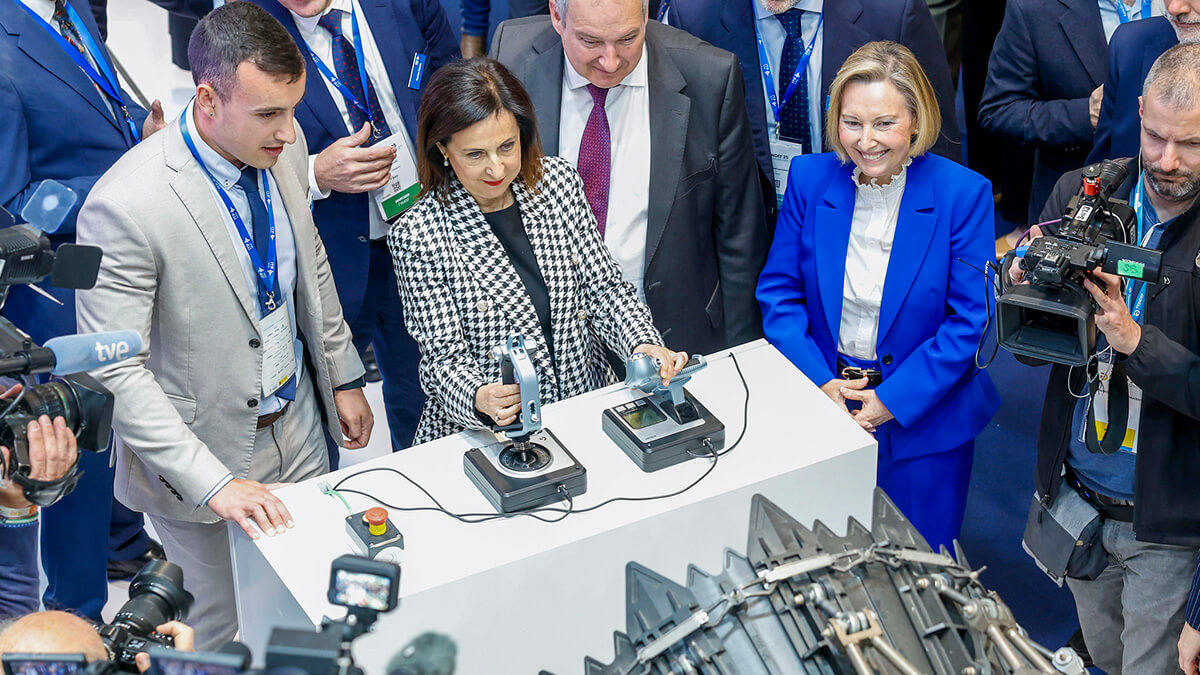
Let it go well, but without drawing too much attention
Whether because of her political ideology, unknown personal issues or because she understands that it could have a negative impact on her rating in the Sociological Research Centre, Robles avoids being photographed by photographers and television cameras alongside missiles, cannons, tanks and combat vehicles, machine guns, rocket launchers, rifles, pistols or large-calibre bombs, although there are a few exceptions. And as for climbing onto a Spanish Leopardo 2E combat vehicle, a platform armed with a huge cannon... no way!
On the contrary, she encourages the media to photograph her next to a computer screen, with doctors or patients in a hospital, visiting a museum and, above all, greeting or chatting with a woman in uniform from either of the two armies or the Navy during any of her weekly visits to bases, barracks and military units.
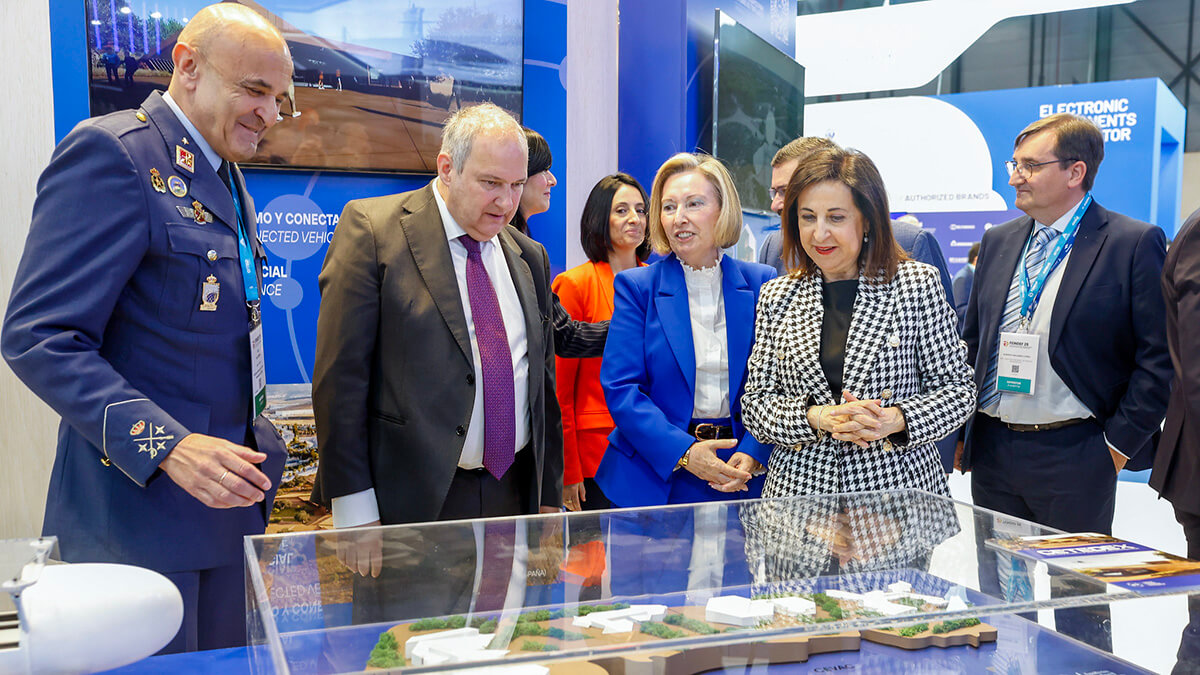
An example of this is what happened during the tour that Margarita Robles and Jordi Hereu took of exhibition hall 10 at the fair, after their silent presence at the opening of FEINDEF 25, a space where the main national defence industries are concentrated.
The minister and her entourage spent a long time at some of the stands exhibiting electronic equipment, software and protective clothing and materials: Navantia, GMV, ITP Aero, the National Institute of Aerospace Technology (INTA), Grupo Oesia and AESMIDE. However, she spent much less time at those displaying all-terrain vehicles with small-calibre cannons, such as Uro, Einsa and Escribano, now under the em&e label.

Margarita Robles avoided even looking at the Spanish companies that develop heavy vehicles armed with powerful cannons. For example, she tiptoed past GDELS-Santa Bárbara, which is showcasing a new generation of self-propelled artillery systems on Ascod and Piraña vehicles armed with 155-millimetre cannons from the Franco-German industrial consortium KNDS. Such firepower-projecting behemoths seem to repel her... even though she has been at the helm of the Ministry of Armed Forces for almost eight years.


